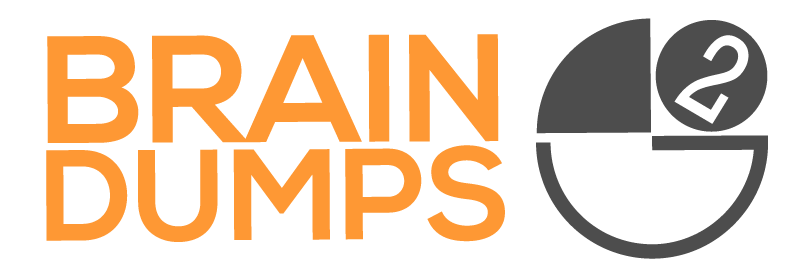
Older readers will doubtless remember the popular mathematics book Mathematics for the Million, by Lancelot Hogben, first published in 1936. There were few general audience books about advanced mathematics available when I was a teenager becoming interested in mathematics, so we all read Hogben’s classic. It was my experience reading such books that helped propel me into majoring in mathematics and eventually becoming a mathematician. They also provided my inspiration for writing such books myself.
The title is a good one, but the reality is that, no matter how accessibly written, expository mathematics books don’t reach a million readers. Those of us who see the beauty in mathematics and thrive on its intellectual challenge may not like to admit it, but the mathematics we love, for all that it’s one of humankind’s greatest cultural creations, is a niche discipline that should be taught as an elective for those who want it, alongside most other disciplines.
In making mathematics compulsory, we do significant damage in that a large number of students—and now we really are talking about millions—are put off, often for life, by anything remotely like mathematics.
The standard counter-argument to making mathematics an elective is that a basic knowledge of some mathematics is an important skill for anyone to have, and somewhat more knowledge is an essential requirement for many careers. But before we nod our heads in agreement, we in the math ed biz should step back and define our terms.
There is one other discipline that education systems around the world universally view as non-elective: the natural language of the society. But in that case an obvious distinction can be (and often is) made between teaching grammar and language use on the one hand, and offering courses on literature and creative writing on the other. (There is of course some overlap between the two in terms of content, though not intent.) The first is an essential life skill, and moreover, even students who struggle with language will recognize its importance to their lives. The second, in contrast, while a gateway to a great deal of pleasure (as consumer or creator), is not an essential life skill.
With mathematics, we do not have universally accepted different names to denote the basic mathematical life skills that really are essential for life in the Twenty-first Century, and the cultural creation we call the academic field of (predominantly pure) mathematics. There was an attempt in the 1990s to promote the term “quantitative literacy” for the former, that got some traction but never managed to take a firm hold. “Practical mathematics” is another name that has been used to refer to the basic-life-skills side to mathematics, but it too did not come to dominate.
In my own case, taking expository advantage of the effective elimination of manually executing formal procedures as an essential component of doing and using mathematics, I (and others) started using the term “mathematical thinking” to refer to the non-procedural part of doing and using mathematics, leaving “mathematics” to refer to the whole shebang (as it always has). That actually puts the dividing line, insofar as there is a divide, in a different place, but I think it does offer us an opportunity to try again to split mathematics education into two (connected) threads.
[I first discussed mathematical thinking in an MAA post in September 2012, when I was just about to launch my online course Introduction to Mathematical Thinking on the then-new MOOC platform Coursera. My thinking on this has evolved since then, as discussed in the three Blue Notepad Videos on sumop.org. This more recent view is better aligned with this essay.]
Regardless of terminology, however, we do need to start talking (again) about separating “quantitative stuff for the millions” from mathematics-for-the-interested. The cost of not doing so, to individuals, to society, and to the discipline of mathematics itself, is simply too great.
The reason we should reignite the discussion now is that two powerful drivers are present that are today far more significant than they were in the Nineties, when “QL courses” were being enthusiastically touted.
First, widely available, and highly effective, powerful digital tools are now available both for using mathematics and for learning mathematics. (Wolfram Alpha and Desmos are examples, respectively.) Our education system has lagged way behind in adjusting to these changes in mathematical praxis. When it finally catches up, the stage will be set for splitting mathematics education into two separate threads.
This graph was the focus of much attention in March of this year as the US prepared for the coronavirus to hit our shores. Being able to correctly interpret this theoretical graph, and many subsequent graphs based on real data, showing far more details, was key to formulating policy.
This graph was the focus of much attention in March of this year as the US prepared for the coronavirus to hit our shores. Being able to correctly interpret this theoretical graph, and many subsequent graphs based on real data, showing far more details, was key to formulating policy.
The second driver, which is a consequence of the widespread availability and use of digital quantitative tools, is that data science is now an essential requirement in the education of the next generation.
Nothing could illustrate more dramatically the need for good data-science education than the crucial need to be able to read the plethora of graphs and other quantitative representations produced regarding the growth of the coronavirus pandemic. I have seen claims made publicly by influential people that are based on hopelessly naïve—and hence hopelessly wrong—interpretations of simple trend lines produced to help decision makers select optimal courses of action.
Focusing on the height or slope of a curve rather than the second derivative is perhaps the most dangerous error. With a highly contagious pandemic, we are facing exponential growth, which will rapidly dominate the current height or slope, so the second derivative is the key indicator. [A good data science education can also raise awareness of the counter-intuitive nature of exponential growth. See my June post earlier this year for a short discussion.]
Incidentally,I looked at the use of prediction graphs for pandemic planning in my May post. US decision makers did a poor job of reading the data, and the result was a death count an order of magnitude larger than it could have been. Good data science skills are crucial in a modern society.
Absent a widely accepted term, for the purpose of this essay I’ll use “mathematical thinking” to refer to the mathematical-life-skills education that should be obligatory to all, and “mathematics” for the classical discipline. (You can mentally replace the former with “quantitative literacy” if you prefer. “Thinking” and “literacy” both convey the essence that the education is aimed at improving people’s thinking process, not mastering the highly stilted form of thinking that is required in advanced mathematics.)
When would the two threads of mathematical education diverge? After middle school surely, and most likely during the final two years of high school, so around age 16, though I could mount an argument for it being a couple of years before then. In any event, education before the split should take account of the fact that such a branching is going to occur.
(I’ll be the first to admit that it’s easy to write opinion pieces, by the way. Making things happen in the real world tends to get messy and difficult very quickly. Fortunately, my days doing the latter are now over, and I’m free to be just a sage-with-age.)
For the discipline of mathematics (viewed and presented as a part of human culture), we surely have to provide all students with a taste. But there is no reason for it to be compulsory beyond an initial exposure. It should be an elective, just like music, literature, drama, painting, sports, and all the other (eventually) optional disciplines.
Mathematics-as-a-discipline courses should focus on the classical discipline, developed so all can experience the beauty, the elegance, the rigor, the challenge, and the power and reach of the subject. Some will love it and want more; others will not. After the initial compulsory courses, teachers of mathematics courses can assume all students are there because they have interest. That will benefit everyone.
What goes into the mathematics for the millions curriculum?
The design of the mathematical-life-skills education that I am current calling mathematical thinking, is where there is real work to be done—and likely battles to be fought.
I have argued elsewhere on a number of occasions that it does not really matter what mathematical topics are chosen, since the essence is the kind of thinking required. Recent “Devlin’s Angle” posts on this issue were in July 2019, November 2019, and December 2019. In particular, the widespread, cost-free availability of digital tools to perform all mathematical procedures means there is no need to develop a high level of fluency and accuracy with any formal procedures. Education should focus on the students achieving sufficient understanding. That surely requires spending considerable time hand executing a range of procedures, but the requirements of speed and accuracy that were important for earlier generations (including mine) evaporated in the 1990s.
The mathematics educator Liping Ma made a good case some years ago for arithmetic (integer and fractions) being an adequate base for students to master all the key cognitive skills for mathematical thinking. Ma based her case on teaching done in China, where she began her teaching career before moving to the United States and obtaining a doctorate at Stanford University.
I see her point, but my vote would be arithmetic, algebra, and geometry, since they are all entry-level subjects, and all are relevant in many careers and various walks of life. Moreover, all of today’s teachers are familiar with those subjects.
To that list, we should surely add data science (which includes the topic of algorithms), since that subject plays such a major role in today’s world. My Stanford colleague Jo Boaler has of late been arguing for a focus on data science.
The importance of data science. This figure is taken from a government planning document used by the UK government in early March to explore various mitigation strategies for the coronavirus epidemic that was just beginning. The actual figures are estimates produced by a mathematical model based on existing techniques of mathematical epidemiology. Effective use of such representations requires the ability to correctly interpret the relative shapes of the different scenario-curves, understanding what they each signify, in order to make better decisions. Knowing what to ignore is as important as knowing what is critical information, in order to make good use of predictive graphs such as these.
The importance of data science. This figure is taken from a government planning document used by the UK government in early March to explore various mitigation strategies for the coronavirus epidemic that was just beginning. The actual figures are estimates produced by a mathematical model based on existing techniques of mathematical epidemiology. Effective use of such representations requires the ability to correctly interpret the relative shapes of the different scenario-curves, understanding what they each signify, in order to make better decisions. Knowing what to ignore is as important as knowing what is critical information, in order to make good use of predictive graphs such as these.
What specific topics in those subjects would we need to cover, and to what extent? I think this should be drive

- There are a lot of things to remember before you hire a web development and web design firm.The phrase "unschooling" essentially implies "not sch

- We present such ICBB questions answers that help you fully understand each IASSC Certified Lean Six Sigma Black Belt ICBB exam topic.

- harder to make a deal and convince someone you deserve a better price on a vehicle if you are draped in expensive clothing. While you want to appear neat and ct

- From our professional to personal routine, many gadgets are always required handy to keep up with all sorts of tasks.Educating is one of the few professions the